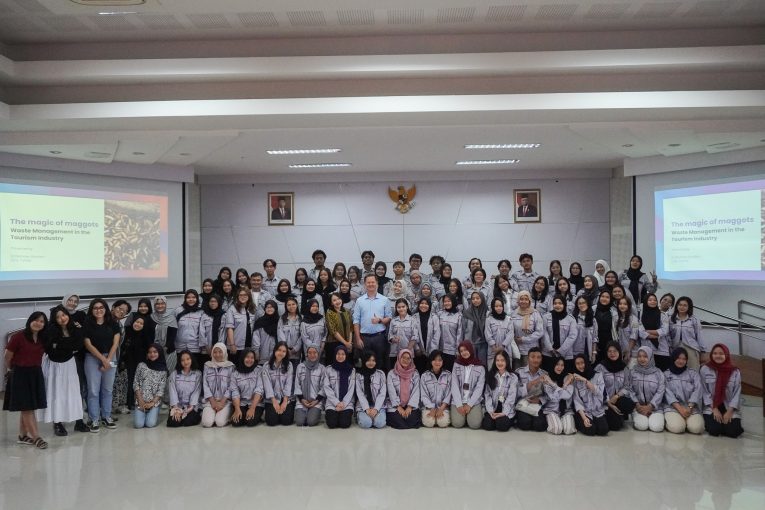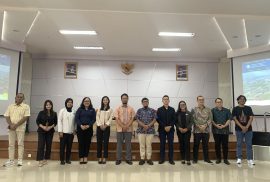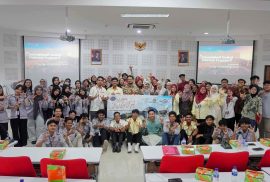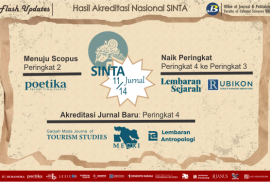
“Waste can have a significant impact on tourism, and we urgently need more sustainable waste management solutions,” said Nicholas Jeffery Goodwin, Ph.D., CEO of Tulodo, during a public lecture at the Tourism Study Program on October 17, 2024, at the Soegondo Auditorium, Faculty of Cultural Sciences, UGM. The session was moderated by Diyah Ayu Puspitasari, S.S., M.A.
At this public lecture, Nicholas, CEO of an international consulting firm specializing in behavior and social impact, addressed the topic of Waste Management in the Tourism Industry. This lecture is part of the Tourism Study Program’s initiative to enhance students’ understanding of current issues in tourism studies. It also reflects the program’s commitment to achieving the 4th SDG (quality education) for its students at the Faculty of Cultural Sciences, UGM.
To add relevance to the material presented, Nicholas also expressed his views regarding waste management in the tourism industry in Yogyakarta. He highlighted that waste management in the region has surpassed its capacity, is inefficient, faces regulatory challenges, suffers from limited infrastructure, and encounters resistance from the community.
To strengthen the relevance of the material presented, he also shared his views on the challenges of waste management in the tourism industry in Yogyakarta. He revealed that one of the main problems is the accumulation of waste in landfills, which has exceeded its capacity and lead to environmental pollution.
Nicholas also emphasized the lack of an efficient recycling process as a crucial factor in waste management in Yogyakarta. He pointed out that organic waste is the largest contributor, making up about 50-60%. Organic waste has a crucial role in waste management, as improper handling can lead to significant environmental consequences. This is because organic waste is a major source of greenhouse gas emissions such as methane. Unmanaged organic waste can also pollute groundwater and damage soil quality, making its management pivotal to maintain environmental balance. In addition, Nicholas also noted other challenges such as infrastructure limitations, regulatory issues, and community resistance that hinder the implementation of more effective waste management programs.
As a solution to the organic waste problem, Nicholas proposed several strategic approaches. One of the steps that can be taken is to strengthen the separate collection system for organic waste, distinct from other types of waste. He also emphasized the importance of providing waste management training for local communities and stakeholders in the tourism industry.
One of the innovations underlined by Nicholas is the use of Black Soldier Fly (BSF) larvae in the composting cycle. These larvae can be added to a pile of organic waste to speed up the decomposition process. During this process, the BSF larvae are able to break down the organic matter efficiently, producing decomposed material.
Nicholas further explained that it can contribute to SDG 13 (addressing climate change) through optimal waste management in the tourism sector. By implementing an efficient waste management system, the tourism industry can not only reduce greenhouse gas emissions, but also raise awareness of sustainability among tourists and industry players. Good waste management practices, such as the collection of organic waste and the use of innovative technologies, can help create more environmentally friendly tourism destinations, thereby attracting more eco-conscious travellers as well as supporting climate change mitigation efforts.




